A great first paragraph in a non-fiction book is like a firm handshake. It grabs you, sets the tone, and makes you want to stick around for the conversation. The best opening lines don’t just introduce a topic; they pull you into the author’s world, whether it’s a gritty battlefield, a quiet reflection, or a wild idea that makes your brain do a double-take.
I know a few things about opening paragraphs. I’m the co-founder, in 2002, of Ghostwriters Central, and my contract writers have helped many authors write their books. Like all of you, I’m also an avid reader. My professional book ghostwriters have helped many authors write their manuscripts.
My top ten non-fiction book openers stand out because they’re bold, vivid, or slyly clever, each one a masterclass in hooking the reader. Let’s dive into why these paragraphs are the cream of the crop, without leaning on lists or stiff formatting, and with a bit of wit to keep things lively.
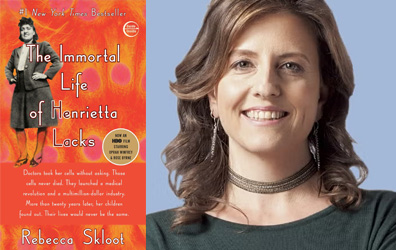
Consider The Immortal Life of Henrietta Lacks by Rebecca Skloot. Her opening paragraph drops you into the life of a woman whose cells changed science forever, but it’s not a dry lab report. Skloot paints a picture of Henrietta, a poor Black tobacco farmer, with warmth and humanity, hinting at the ethical quagmire to come. It’s personal, it’s urgent, and it makes you feel like you’re sitting across from Henrietta herself, hearing her story over coffee. The paragraph’s strength lies in its ability to balance a single life against the massive scientific legacy, leaving you curious and a little heartbroken.

Then there’s Sapiens: A Brief History of Humankind by Yuval Noah Harari. His opener is a cosmic gut-punch, starting with the universe’s 13.8-billion-year backstory before zooming in on humans as just one species among many. It’s like Harari’s saying, “Get ready, folks, you’re not as special as you think.” The paragraph’s genius is its scale. It is sweeping yet accessible, it sets the stage for a book that’s going to mess with your worldview. Harari’s dry humor and knack for making the grandiose feel intimate make you want to keep reading, if only to see what other sacred cows he’ll tip over.

Into Thin Air by Jon Krakauer grabs you by the collar and drags you up Everest. His first paragraph doesn’t waste time with pleasantries; you’re immediately freezing, exhausted, and staring down a deadly storm. Krakauer’s vivid sensory details—wind, ice, sheer panic—make you feel like you’re there, questioning why anyone would climb a mountain that wants to kill them. It’s a high-stakes opener that mirrors the book’s relentless intensity, and it’s impossible to put down because you’re already invested in whether he’ll make it out alive.
I can sympathize. I lived in Wyoming for several years in the 1990s.
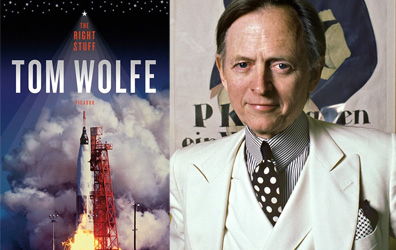
Switching gears, The Right Stuff by Tom Wolfe kicks off with a test pilot’s wife waiting for the inevitable knock on the door, news that her husband’s plane has gone down in flames. Wolfe’s conversational swagger, peppered with his signature exclamation points, captures the macho bravado of the space race while grounding it in fear. It’s like eavesdropping on a barroom tale, but with stakes that feel sky-high. The paragraph’s rhythm and wit make it a standout, setting up a book that’s as much about courage as it is about ego.
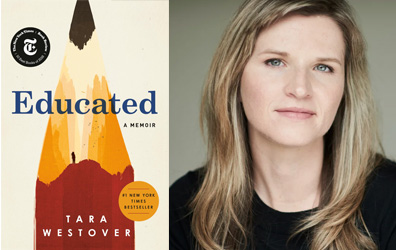
Educated by Tara Westover starts with a deceptively simple scene: a young girl on a windswept Idaho hill, surrounded by her survivalist family. Westover’s prose is spare but haunting, hinting at the isolation and extremism that shaped her. The paragraph feels like the calm before a storm, pulling you into a memoir that’s both a coming-of-age story and a clash of worlds. Its quiet power lies in what it doesn’t say outright, leaving you itching to uncover the rest of her journey.
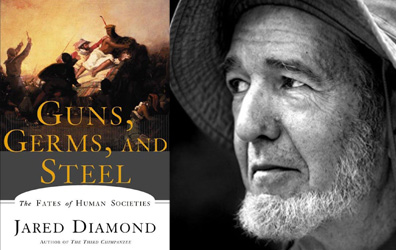
In Guns, Germs, and Steel by Jared Diamond, the opening paragraph poses a question that’s been bugging humanity forever: why do some societies dominate while others get left in the dust? Diamond’s conversational tone makes you feel like he’s tossing out this massive idea over a beer, but the weight of it sticks with you. It’s a hook that promises big answers without being preachy, and it sets up a book that’s as much about curiosity as it is about history. You’re already nodding along, ready to follow his logic wherever it leads.
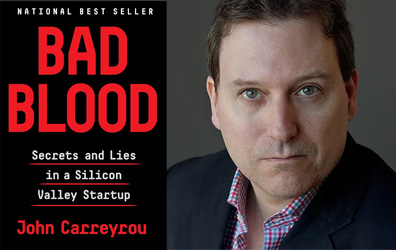
Bad Blood by John Carreyrou starts with a shady meeting in a Silicon Valley office, where Theranos’s Elizabeth Holmes is spinning her web of lies. The paragraph is a slow burn, dripping with tension as Carreyrou lays out the stakes of a billion-dollar scam. It’s like the opening scene of a thriller, except it’s real, and you’re hooked because you know this house of cards is going to collapse spectacularly. The understated tone and sharp details make you trust Carreyrou as your guide through the chaos.
Holmes is serving an 11-year prison sentence.
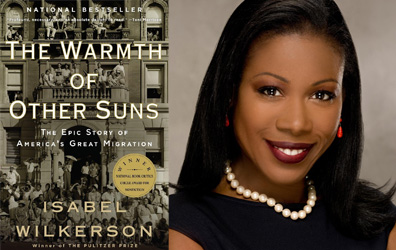
For a different flavor, The Warmth of Other Suns by Isabel Wilkerson opens with the story of Ida Mae Gladney, one of millions in the Great Migration. Wilkerson’s prose is lyrical yet grounded, painting Ida Mae’s decision to leave the Jim Crow South as both ordinary and monumental. The paragraph feels like a family story passed down through generations, warm but tinged with pain. It hooks you by making one woman’s choice feel like the heartbeat of a larger American epic.
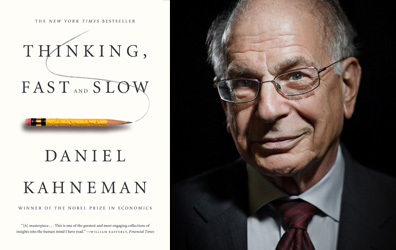
Thinking, Fast and Slow by Daniel Kahneman sneaks up on you with a deceptively simple anecdote about how your brain makes snap judgments. It’s like Kahneman’s inviting you to a magic show, only to reveal the tricks your mind plays on itself. The paragraph’s charm is its accessibility. The big ideas about psychology wrapped in a chatty, “let me explain this” attitude. You’re hooked because you’re already questioning your own brain, and Kahneman’s got you right where he wants you.
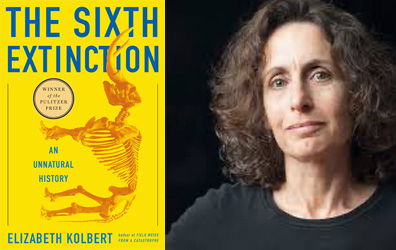
Finally, The Sixth Extinction by Elizabeth Kolbert opens with a frog in a rainforest, facing a mysterious die-off. Kolbert’s writing is crisp and urgent, blending science with a sense of impending doom that feels like a wake-up call. The paragraph works because it’s specific, a single frog, yet universal, hinting at a planet-wide crisis. It’s the kind of opener that makes you wonder how bad things are going to get.
*
Why do I think these opening paragraphs are the best? They don’t just inform; they evoke. Some hit you with raw emotion, like Westover’s quiet hill or Krakauer’s frozen terror. Others, like Harari or Diamond, challenge you to think bigger than you ever have. A few, like Wolfe and Carreyrou, lean on storytelling flair to make real life feel like a novel.
Each paragraph is a tightrope walk, balancing context, tone, and a promise of what’s to come. They’re not just introductions; they’re invitations to see the world differently, whether it’s through the lens of science, history, or human struggle.
And they stick with you, like a catchy tune or a good punchline, because they’re crafted with precision and a touch of magic. That’s why these openers aren’t just good, they’re the gold standard, the ones that make you forget you’re reading non-fiction and just want to keep turning pages.
***